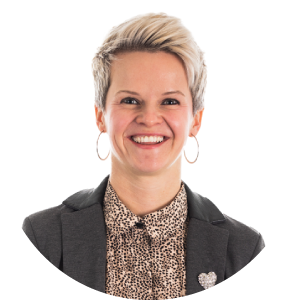In this article
A whole of life mortgage is a specialised product that allows homeowners, typically in later life, to borrow money against the value of their property for the rest of their lives.
Unlike traditional mortgages, there is no set repayment term, and the loan is usually settled when the borrower passes away or moves into long-term care.
The borrowed amount, plus any accrued interest, is repaid through the sale of the property.
This type of mortgage provides a flexible way to access the equity tied up in your home without needing to sell or move.
It can be used to release funds for a variety of purposes, such as covering living expenses, home improvements, or even supporting family members.
In some cases, a whole of life mortgage can also be used to purchase a new home, provided you have enough deposit.
There are a few different types of whole of life mortgages available, each offering different ways to unlock the value in your home. .
Types of Whole of Life Mortgages
Lifetime Mortgages
A lifetime mortgage is one of the most popular equity release options. It allows you to borrow money against the value of your home, while continuing to live in it.
There are usually no monthly repayments, as the interest rolls up over time. The loan, plus any accumulated interest, is repaid when your home is sold, typically after you pass away or move into long-term care.
You can choose to receive the funds as a lump sum or through smaller, flexible payments over time.
Additionally, some lifetime mortgages allow voluntary repayments to help manage the interest and reduce the overall debt.
Home Reversion Plans
A home reversion plan involves selling part or all your home to a provider in exchange for a lump sum or regular payments.
You still retain the right to live in the property for the rest of your life, rent-free, but ownership (or part ownership) of the property is transferred to the provider.
The provider will recoup their share from the eventual sale of the home when you no longer live there.
This option does not involve accumulating interest, as it’s not a loan. However, the share of your home you sell will belong to the provider, which can affect the inheritance you leave behind.
Retirement Interest-Only (RIO) Mortgages
A retirement interest-only (RIO) mortgage is a later-life lending product that allows you to borrow against your home while making monthly payments to cover the interest.
The loan balance remains fixed, with the loan repaid when your home is sold, either when you pass away or move into long-term care.
RIO mortgages are suitable for those who can afford regular payments and want to ensure the loan amount does not increase over time.
These mortgages are designed for those who want to manage costs and prefer to maintain control over their home’s equity.
Speak to an Advisor – It’s Free!
Schedule a free callback from one of our experts today.
- All situations considered
- Transparent and honest mortgage advice
- We search 1000s of purchase and remortgage deals
Our customers rate us 4.9/5
Using a Whole of Life Mortgage to Buy a New Home
A whole of life mortgage can also be used to purchase a new property.
If you’re looking to downsize, relocate, or move closer to family, you can use the equity from your current home combined with a deposit to buy a new property.
This allows you to move into a new home while avoiding regular mortgage repayments, as the loan is only repaid when your new home is eventually sold.
Alternatives to a Whole of Life Mortgage
If you’re not sure whether a whole of life mortgage is the best option for you, there are other alternatives worth considering, particularly for those who can manage regular repayments or don’t want the loan to be repaid through the sale of their home.
In recent years, some lenders have introduced traditional residential mortgages that can extend up to age 90 or beyond.
These mortgages are designed for older borrowers who want to keep making regular monthly payments. Depending on the lender, you may be able to choose between repayment or interest-only terms.
These mortgages are typically more flexible than whole of life products, as they can be repaid during your lifetime without needing to sell the home.
This option might suit those with a reliable retirement income who want to maintain full control over their property’s equity.
Who Can Apply for a Whole of Life Mortgage?
Whole of life mortgages are generally available to homeowners over the age of 55, although many products are designed for those in their 60s or older.
To qualify, your home needs to be worth a certain amount, usually at least £70,000, though this can vary depending on the lender.
The amount you can borrow is based on the value of your home and your age at the time of application.
Benefits of a Whole of Life Mortgage
- Stay in Your Home: You remain the owner of your home and can live in it for as long as you wish.
- No Monthly Repayments: With some whole of life mortgages, like lifetime mortgages and home reversion plans, there are no monthly payments required. The loan is repaid when your home is sold.
- Flexible Funding: You can access the funds as a lump sum or draw down smaller amounts over time, depending on your needs.
- Tax-Free Cash: The money you release from your home is tax-free, providing flexibility to cover retirement expenses or help family members.
- Buy a New Home: Whole of life mortgages can be used to purchase a new property, making them an option if you’re looking to downsize or relocate.
Things to Consider
While whole of life mortgages offer a convenient way to access the value in your home, in some cases they can reduce the value of your estate.
Interest accumulates over time, which means the amount you owe will grow, potentially reducing the inheritance you leave to your beneficiaries.
If you opt for a home reversion plan, the portion of your home you sell will belong to the provider, further affecting what you can pass on.
Additionally, taking out a whole of life mortgage could impact your eligibility for means-tested benefits, so it’s important to consider the long-term financial implications before proceeding.
Is a Whole of Life Mortgage Right for You?
Whole of life mortgages are ideal for homeowners who want to stay in their home while unlocking the value tied up in their property.
Whether you need extra income during retirement, want to make home improvements, or help family members financially, these products provide flexibility.
However, it’s important to explore all your options, including lifetime mortgages, home reversion plans, retirement interest-only mortgages, and even traditional residential mortgages that can run until age 90 or beyond.
Speaking to an advisor who specialises in over 60s mortgage lending can help you understand which product is the best fit for your financial needs and future goals.







